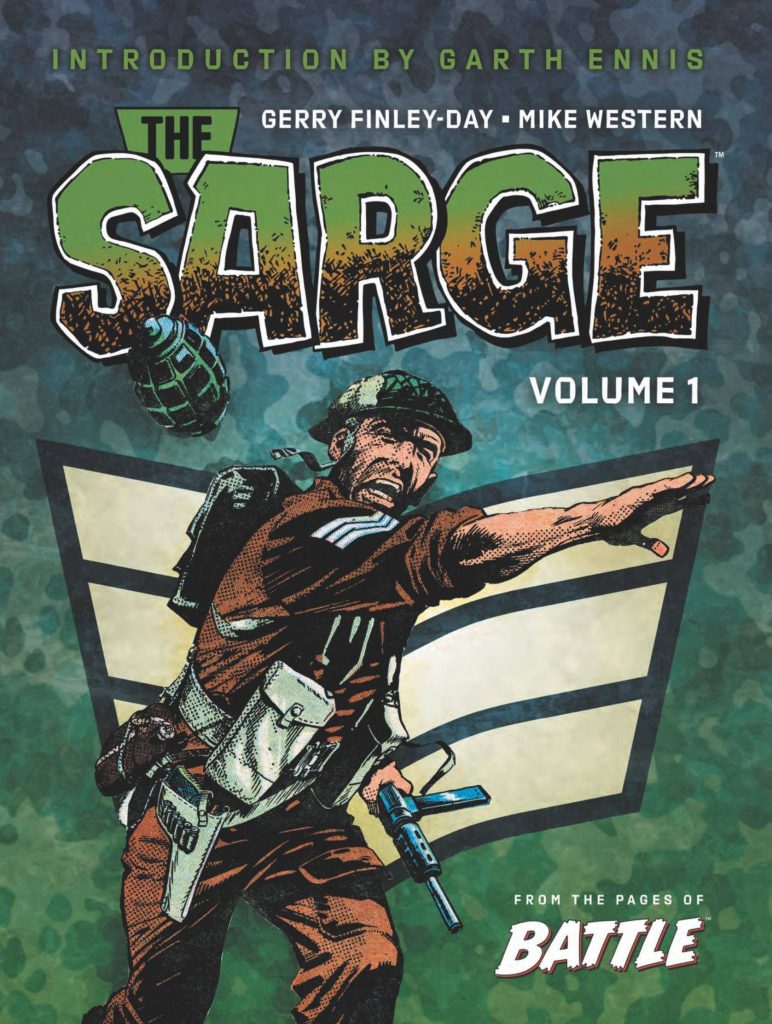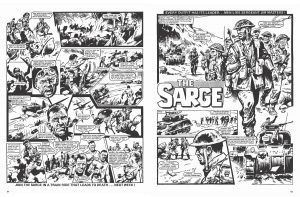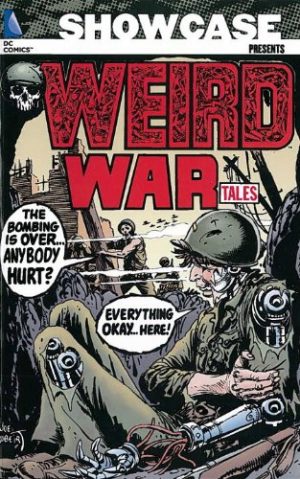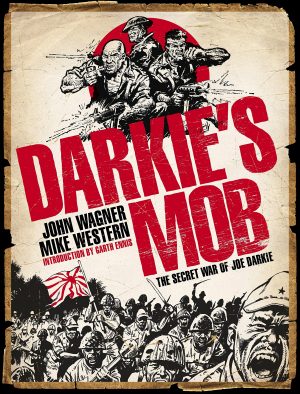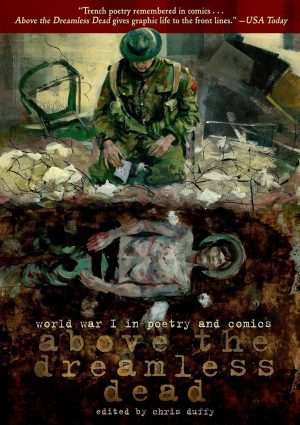Review by Karl Verhoven
Other alumni from the fondly remembered 1970s and 1980s war anthology Battle might be better remembered, but for over three years ‘The Sarge’ was the beating heart of the comic, although it takes a while to find its groove.
Today we’re used to war comics having a deeply researched realism, but the writers of war stories for weekly British anthologies from the 1950s to the 1980s largely prioritised a heroic spirit with little concern for reality. After all, those comics were first sold to kids whose fathers had served, and possibly died during World War II, and the broad strokes they developed were even sustained in the iconoclastic Battle. Gerry Finley-Day’s earliest strips are standard war shorts, with the wily experience of veteran Sergeant Jim Masters winning the day, and Germans nothing but cannon fodder caricatures.
That never changes, but what does is Finley-Day’s approach. There is realism in Mike Western’s polished art. His cast breathe and move, and from the earliest strips he features soldiers who look like ordinary men, not heroes. Perhaps inspired by that, Finley-Day gradually introduced permanent members of the Sarge’s platoon, each distinctively designed by Western. Specky Spence is university educated, Bully Bates occasionally goes too far, the slimy Kidd collects water bottles from the dead, and Lover Boy Lovat is always on the prowl for women. They’re gradually introduced, easily distinguished, and remain true to their characters, and with Kidd the exception, all are fiercely loyal to the Sarge. Even with the strips being densely packed, it’s a difficult trick to pull off in three and four page episodes also requiring a lot of action, but Finley-Day manages it.
Opening with the Dunkirk retreat in 1940, the crew are then shipped to the North African desert for a long spell, after which they’re transferred to Sicily, where this first volume ends. The mystery of the surly Unknown Unwin remains to be solved, a soldier who just turned up and claimed to be assigned to the Sarge, yet shuns all efforts of friendship. “I’ll tell you about teams Sarge”, he snarls on the final page, “they always make the best targets”.
Get past the standard opening episodes, which almost all have the benefit of Western art, and the character-based nature of Finley-Day’s scripts serve up an appealing dish that’s fun without being greatly taxing. Contrary to what Unwin may think, teams have a place in war comics. Will he be revealed in Volume 2?
